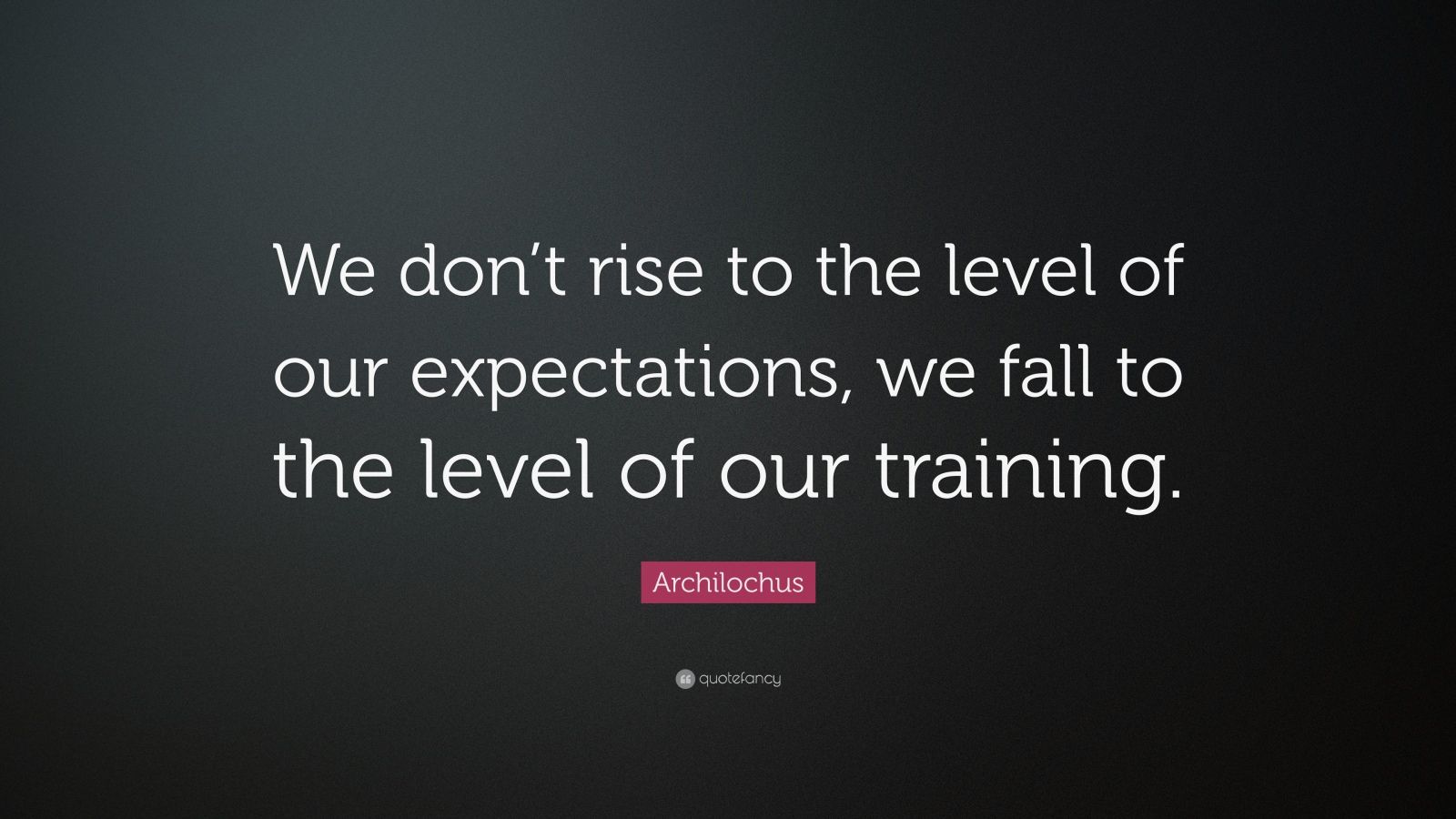People rise to our high expectations and don t rise if we have low ones we do well when other people think we will and we don t do well when people expect us to fail

People rise to our high expectations and don’t rise if we have low ones.

When it comes to expectations, a rather intriguing phenomenon occurs - people tend to rise to high expectations set for them, while often failing to rise if the expectations are low. It appears that our performance is significantly influenced by the beliefs and expectations others hold about us. This powerful effect is known as the Pygmalion effect, a term coined by psychologist Robert Rosenthal in the 1960s.
The Pygmalion effect suggests that when others have positive expectations about us and believe in our abilities, we are more likely to succeed. Conversely, if others expect us to fail or lack confidence in our capabilities, it can become a self-fulfilling prophecy, hindering our performance and potential. This interesting psychological phenomenon has been extensively studied and demonstrated in various contexts, including education, workplace settings, and personal relationships.
Research has shown that high expectations have a significant impact on individuals’ motivation, confidence, and performance. Imagine being told by a teacher that they believe in your capabilities and expect you to excel in a certain subject. This positive reinforcement and high expectation can boost your belief in yourself, drive you to work harder, and ultimately lead to improved academic performance. On the other hand, if a teacher has low expectations for you, it might demotivate you, decrease your confidence, and negatively affect your performance.
The Pygmalion effect is not limited to educational environments but also manifests itself in various other aspects of our lives. In the workplace, individuals who are given challenging projects and entrusted with responsibilities beyond their comfort zone are more likely to rise to the occasion and deliver exceptional results. When supervisors or managers express confidence in their employees’ abilities, it ignites a sense of empowerment and encourages them to go above and beyond. On the contrary, when expectations are low, employees may feel undervalued and may not put forth their best efforts.
Likewise, personal relationships are also influenced by our expectations. When we have high expectations for our partners, friends, or family members, we often see them living up to those expectations. Our belief in their potential can motivate them to strive for greatness, resulting in growth and achievement. Conversely, when we doubt their capabilities or expect them to fail, it can create a negative environment that hampers their self-esteem and overall performance.
Ultimately, the Pygmalion effect teaches us the power of expectations and the influence they hold over ourselves and others. By setting high expectations and believing in others, we can inspire them to reach their full potential. It is essential to recognize the impact our expectations can have, both positively and negatively, and use this knowledge to foster growth and success in our personal and professional lives.

Source: Discover Magazine
Share
Related Posts
Quick Links
Legal Stuff

